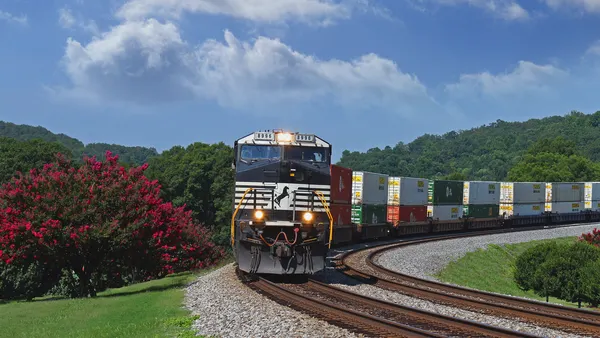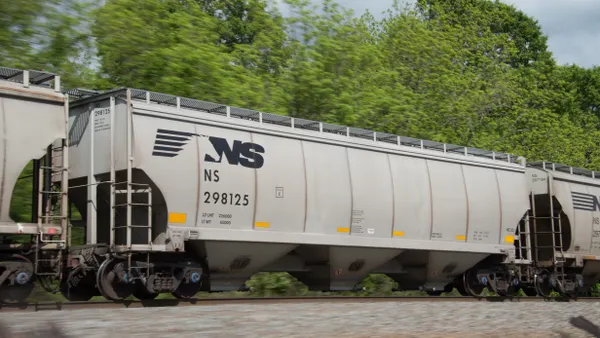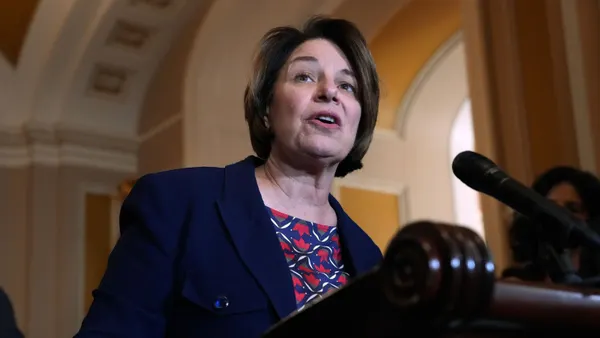Dive Brief:
- J.B. Hunt and BNSF Railway have been in arbitration since January 2017 regarding more than $100 million in revenue that the trucking giant claims it is owed, The Wall Street Journal reports.
- BNSF and J.B. Hunt have an agreement to cooperate on intermodal freight transport and the dispute is over how revenue from that partnership should be split, with disputed revenue and charges going back to 2014. The two companies have been working together in some capacity since 1990.
- J.B. Hunt CFO David Mee on an October earnings call declined to confirm whether the relationship was in danger since he said he could not speak for BNSF. "[You] have to ask us both that question at the same time. And I'm not about to answer that question without them," he said, adding that the relationship has survived arbitration in the past.
Dive Insight:
Intermodal has been the lead story in railroading for years, and the relationship between J.B. Hunt and BNSF has allowed the players to both contribute to and benefit from that trend. The last two weeks of September made U.S. history by transporting the most intermodal units yet, according to the Association of American Railroads (AAR).
Steady growth as a result of this partnership means that both players are more and more reliant on intermodal revenue. Capturing every penny is also increasingly important in the intermodal business in light of falling rates despite increasing volume.
J.B. Hunt brought in $3.66 billion from intermodal volume in 2015, and roughly 60% of that was carried by BNSF, the Journal reported. That means both companies' margins are increasingly dependent on this relationship and any changes in the contract between the two inevitably boosts one at the expense of the other.
On J.B. Hunt's third-quarter earnings call last month, analyst Scott Group of Wolfe Research asked if the company's statement regarding margins reflects what Mee knows "as it relates to arbitration."
"We don't have any comments about arbitration because we don't know. Nice try, Scott," Mee responded. When pressed he went on to say: "11% to 13% is what our target is. 11% to 13% is still our target."














